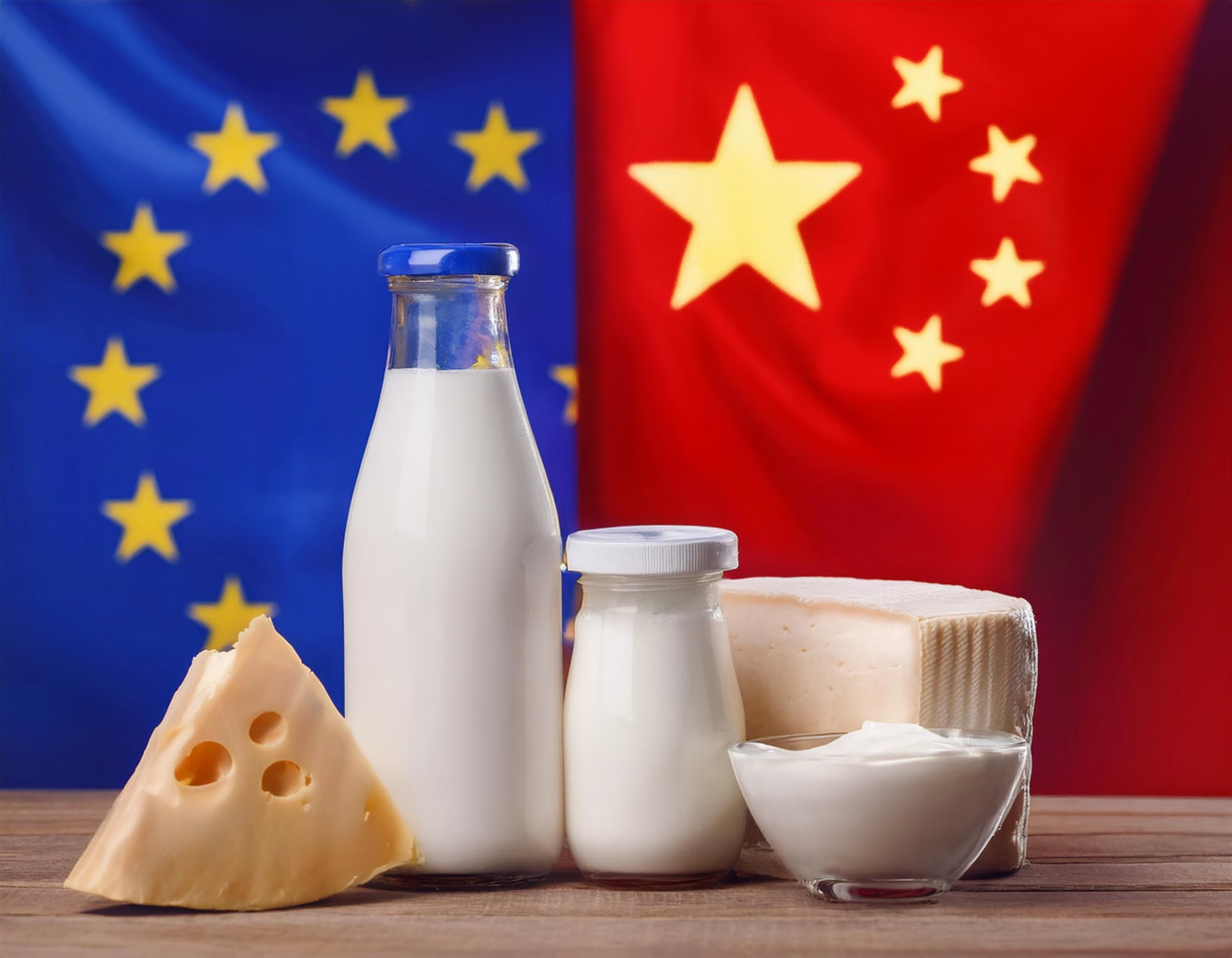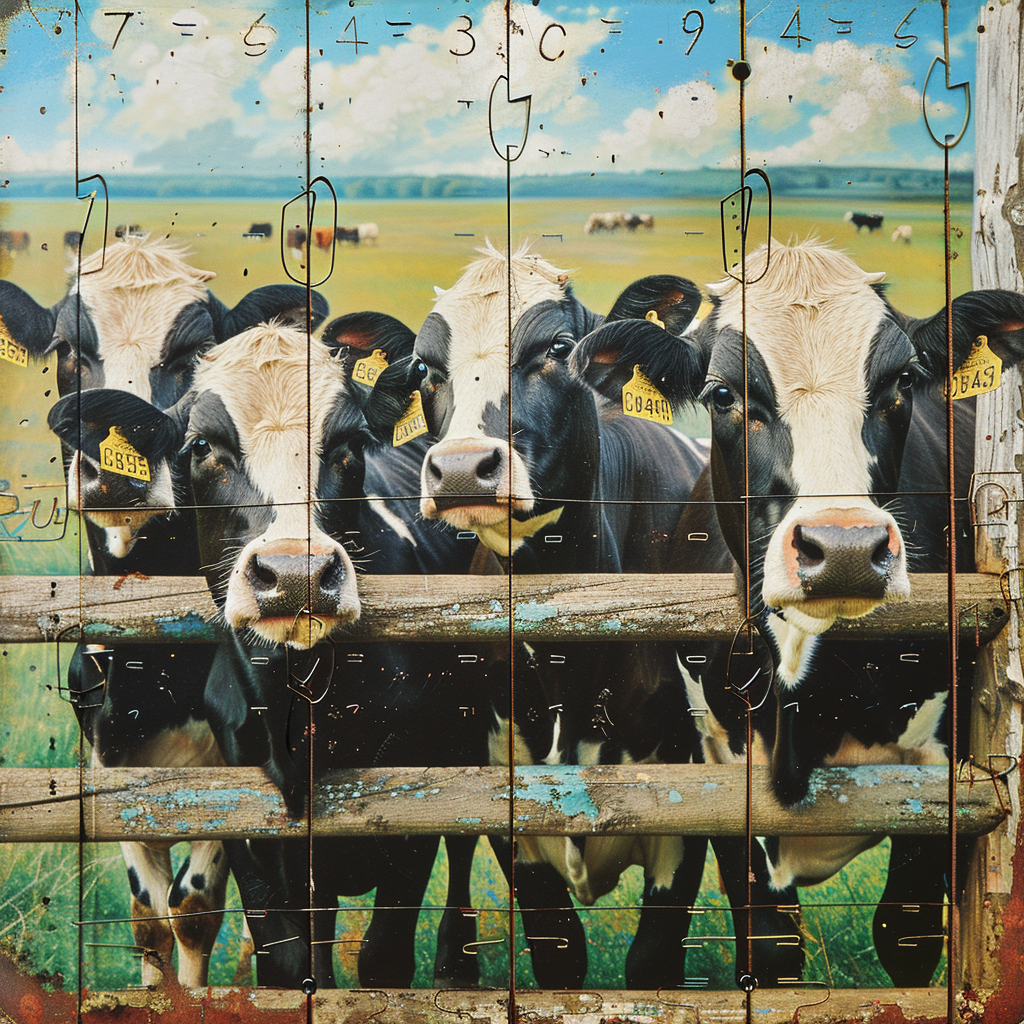Why are EU dairy farmers worried about China’s new trade probe? Learn how it could affect cheese, milk, and cream exports here.
Summary: Are you keeping an eye on the global market? If so, you might have noticed a new storm brewing. Recently, China announced an anti-subsidy probe on EU dairy imports, targeting essential commodities like cheese, milk, and cream. This move came hot on the EU’s decision to raise tariffs on Chinese electric vehicles. As the tit-for-tat trade measures continue, European dairy farmers might be on edge, particularly those from Ireland and the Netherlands. Could this intensify the financial strain on the dairy sector, which is already grappling with a volatile market? According to Tadhg Buckley of the Irish Farmers’ Association, this could affect €45 million worth of Irish exports. The European Union Chamber of Commerce in China expressed concern about the increasing economic tensions between the EU and China, urging member firms to cooperate fully with the investigation. Dutch dairy cooperativeFrieslandCampina has admitted the anti-subsidy probe, demonstrating their willingness to cooperate and adhere to international trade regulations.
- China’s anti-subsidy probe on EU dairy imports targets essential commodities like cheese, milk, and cream.
- This probe follows the EU’s decision to raise tariffs on Chinese electric vehicles, escalating trade tensions.
- European dairy farmers may face increased financial strain, especially from Ireland and the Netherlands.
- Tadhg Buckley of the Irish Farmers’ Association states the investigation could impact €45 million worth of Irish exports.
- The European Union Chamber of Commerce in China urges member firms to cooperate fully with the investigation.
- Dutch dairy cooperative FrieslandCampina expresses willingness to comply with the anti-subsidy probe.

Imagine discovering that one of your largest export markets has initiated an inquiry that may interrupt your company. This is the reality for EU dairy producers today. China, a major importer of European dairy goods, has launched an anti-subsidy investigation into cheese, milk, and cream from the European Union. But why should you be concerned? What implications does this have for your business? How may this affect your bottom line? Staying informed is critical in light of prospective tariffs that reduce product competitiveness, market access limitations, and significant revenue impacts. “Regrettably, the use of trade defense instruments by one government is increasingly being responded to seemingly in kind by the recipient government,” the European Union Chamber of Commerce in China said. So, how can you navigate these challenging times? Continue reading to discover out.
EU’s Tariff on Chinese EVs Sparks Retaliatory Dairy Probe: A Trade Tug-of-War
The European Union has amended its tariff proposal for Chinese-made electric cars (EVs), increasing potential punitive levies from 37.6% to 36.3%. This decision occurred after Beijing pressured Brussels to drop these taxes. The EU’s decision to preserve its EV sector accidentally prompted a retaliation from China. In response, China initiated an anti-subsidy probe into European Union dairy imports, emphasizing cheese, milk, and cream goods. These critical dairy products, designed for human consumption, are now the focus of a trade dispute, reflecting deeper economic concerns between the two world powers.
The Ripple Effect: How EU’s Tariffs on Chinese EVs Are Stirring Up the Dairy Industry
The background to this emerging dairy problem is the EU’s recent decision to adjust tariffs on Chinese electric cars (EVs). Faced with a flood of competitively priced EVs from China, the European Commission took a daring step in early 2023. The goal is to protect the EU’s automobile sector while shielding local job possibilities from fierce competition.
Initially, the tariff was set at 37.6%. However, the amount was slightly changed to 36.3% to maintain the trade balance. This slight modification resulted in a substantial shift in trade ties between the two economic powerhouses. The amended plan was constructed despite Beijing’s requests that the EU remove the levies.
As a dairy farmer, why should you care about the EU’s decision to adjust tariffs on Chinese EVs? Because it has set off a chain reaction that affects you. The increased tariffs have led to a trade tit-for-tat with China, resulting in an anti-subsidy probe into EU dairy imports. This is a stark reminder of how interconnected global trade policies have become. Electric car tariffs are not just a problem for the automobile sector; it’s a strategic game with far-reaching consequences.
Industry’s Response to China’s Dairy Probe: Concerns and Cooperation
The European Union Chamber of Commerce in China did not mince words when it expressed worry about the increasing economic tensions between the EU and China. Given the EU’s recent ruling on Chinese EV tariffs, they argued that the tit-for-tat measures were not wholly unexpected. They highlighted the need for a fair and open inquiry and urged their member firms to assist thoroughly. Their attentiveness demonstrates the necessity of maintaining a balanced and fair commercial partnership.
FrieslandCampina, a Dutch dairy cooperative with significant economic interests in China, has taken a proactive stance in response to the anti-subsidy probe. A representative for the firm stated, “Naturally, we will provide the necessary information related to the investigation if requested, as well as by-laws and regulations.” This proactive position demonstrates FrieslandCampina’s commitment to international trade regulations and willingness to cooperate fully with the investigation.
The Irish Farmers’ Association, represented by Tadhg Buckley, expressed particular concerns about the targeted items. Buckley said that the investigation focuses on cheese and cream, which accounted for a significant share of Irish dairy exports to China last year. “If the investigation remains as it stands…it’s 45 million euros worth of product, but if it expanded outside into powders, it would certainly be a much different and much more significant issue for Ireland,” he said. The association’s scheduled trade mission to China demonstrates its proactive attitude to the probe and protecting its market interests.
Anticipating The Economic Fallout: How China’s Probe Could Rock EU’s Dairy Sector
Anticipating the economic consequences of China’s anti-subsidy investigation into EU dairy imports requires a thorough examination of numerous significant numbers and expert perspectives. EU dairy exports to China constitute about €1.7 billion annually, accounting for a small percentage of overall EU exports to China. While these figures may indicate a limited immediate effect, the implications are far-reaching for particular areas of the EU dairy business.
The stakes are high for Irish dairy producers. Last year, Ireland exported roughly €45 million in cheese, cream, and allied goods to China. If the probe results in higher tariffs or more restrictive measures, the impact might extend beyond these shipments, hurting the more significant dairy sector and specialist nutritional powders, which account for most of Ireland’s exports to China.
Jacob Gunter, Lead Economy Analyst at the Mercator Institute for China Studies, emphasizes this: “Even if duties rise to the point where all dairy commerce is effectively halted, the impact on EU exports would be minimal. However, the pain will be felt more sharply in the largest exporters to China, including Irish butter, Finnish milk powder, Spanish Manchego, and Italian Parmigiano Reggiano” [source]. This attitude is shared by other EU member states, illustrating the unequal effect distribution based on product kinds and amounts exported.
Furthermore, France, which sold $211 million in dairy goods to China last year, faces the possibility of severe disruption. The French dairy sector, the largest EU exporter of dairy products to China, must prepare for significant changes in trade dynamics. This vulnerability highlights a more prominent issue within the EU’s agricultural structure: individual nations’ economic health depends on specialized export connections.
While the overall economic effect on the EU may be minor, individual economies that rely significantly on dairy exports to China must prepare for unexpected disruptions. Strategic changes and export market diversification may be required to offset these risks.
Rising Tariffs: Can EU Dairy Producers Weather the Storm?
One immediate result of the probe might be a considerable increase in Chinese tariffs on EU dairy imports. If this happens, staples like butter and milk, currently under intense competition from local and overseas suppliers, may become prohibitively costly for Chinese consumers. This might result in a significant decrease in demand for these commodities, consequently affecting income streams for EU producers.
Specialized cheeses and premium dairy products from Europe may suffer a different destiny. While some items have distinct tastes and qualities that are difficult to imitate elsewhere, customers in China may still find them too expensive if tariffs increase significantly. Producers of high-end products like Italian Parmigiano Reggiano or French Roquefort would have to look for other markets to offset the loss.
Increased tariffs may also provide opportunities for rivals from the United States, Canada, Australia, and New Zealand. These nations often provide high-quality dairy products at lower rates. Countries with well-established dairy industries, such as New Zealand and Australia, may use this chance to increase their market share in China at the cost of the EU.
Therefore, EU dairy farmers must diversify their market tactics. Improving commercial links with other areas and marketing their distinct product offers may help offset losses. Adapting rapidly to these developments will be critical to maintaining business during trade tensions.
Strategic Moves: How EU and Irish Authorities are Tackling China’s Dairy Probe Head-On
Given the significance of China’s anti-subsidy inquiry into EU dairy imports, both EU and Irish authorities responded immediately and strategically. A concerted effort is ongoing to handle these international trade challenges thoroughly and openly.
The European Union has diversified, stressing collaboration and conformity with World Trade Organization (WTO) standards. The European Union Chamber of Commerce in China emphasized the need for fair and transparent investigations, reaffirming the EU’s commitment to free and rules-based commerce.
On the Irish front, officials are also proactive. Charlie McConalogue, Ireland’s Minister of Agriculture, Food, and the Marine, has been vociferous about his plans to limit the possible effects. McConalogue said: “I will be engaging with the EU Commission to ensure that it has all of the data necessary in Ireland to resolve any issues raised in the proposed investigation.” He added: “In this regard, I am satisfied that European and Irish dairy exports fully comply with World Trade Organisation Rules.”
The EU’s plan involves creating substantial paperwork to establish conformity with international rules. This endeavor is consistent with McConalogue’s commitment to providing extensive information and statistics on the conformance of Irish and EU dairy exports to WTO requirements.
Furthermore, the Irish government has organized a trade mission to China, which will go there at the end of the month. This delegation intends to interact directly with Chinese officials, giving facts and arguments to dispute the assertions motivating the probe. This expedition demonstrates Ireland’s proactive approach and commitment to preserving strong commercial ties amid escalating tensions.
The emphasis on data-driven solutions and diplomatic interaction suggests that the EU and Ireland are addressing urgent issues while also attempting to strengthen their trade rules and procedures against future problems. This complete strategy exemplifies the flexibility and resilience needed in today’s challenging global trading environment.
Lessons from History: Trade Tensions Between the EU and China
To properly understand the significance of the present dairy issue, consider the history of trade disputes between the EU and China. Trade disputes between these enormous economic zones are not uncommon. For example, one major dispute erupted over solar panels. In 2013, the EU levied anti-dumping charges on Chinese solar panels, claiming that Chinese manufacturers were selling them below market value, which was considered unfair to European companies. China replied by opening an anti-dumping investigation into European wine, jeopardizing millions of euros in trade.
In 2020, China imposed anti-dumping tariffs on stainless steel items from the EU in response to a European inquiry into Chinese steel imports. The ensuing tariffs severely disrupted supply networks and raised manufacturing costs for many EU enterprises. These incidents demonstrate a tit-for-tat pattern in which one entity’s trade defense measures trigger retaliatory steps from the other, resulting in an expanding cycle of trade barriers.
Understanding these previous tensions provides a prism to examine the present dairy investigation. It’s part of a repeating storyline in which economic giants use trade policy to protect home sectors or gain geopolitical influence. Such arguments have far-reaching consequences. They go beyond direct financial consequences. Persistent trade conflicts may strain diplomatic ties, disrupt global supply networks, and create a climate of uncertainty for companies. Indeed, when dairy farmers and producers see these changes, the need for strategic adaptation and broad market diversification becomes clear, ensuring they are not disproportionately subject to future trade disputes.
The Bottom Line
As we learn more about the ongoing dairy trade conflict, it becomes evident that EU dairy producers face a new, rugged terrain. The back-and-forth tariffs between the EU and China have created the potential for substantial disruptions. Uncertainty looms, and European authorities and business leaders keenly watch the situation.
China’s expanding domestic dairy output and the increased competitiveness of alternatives from other nations complicate the scenario even more. The impact of punitive tariffs will be felt most acutely by prominent exporters, especially those specializing in high-end and less-replaceable dairy products.
So, how will you, as a dairy farmer, adjust to these prospective changes? What techniques can you use to offset the effects of these tariffs? Now is the moment to weigh your alternatives and prepare for a secure future. Share your methods and ideas in the comments section below, or contact industry forums to explore possible solutions.













